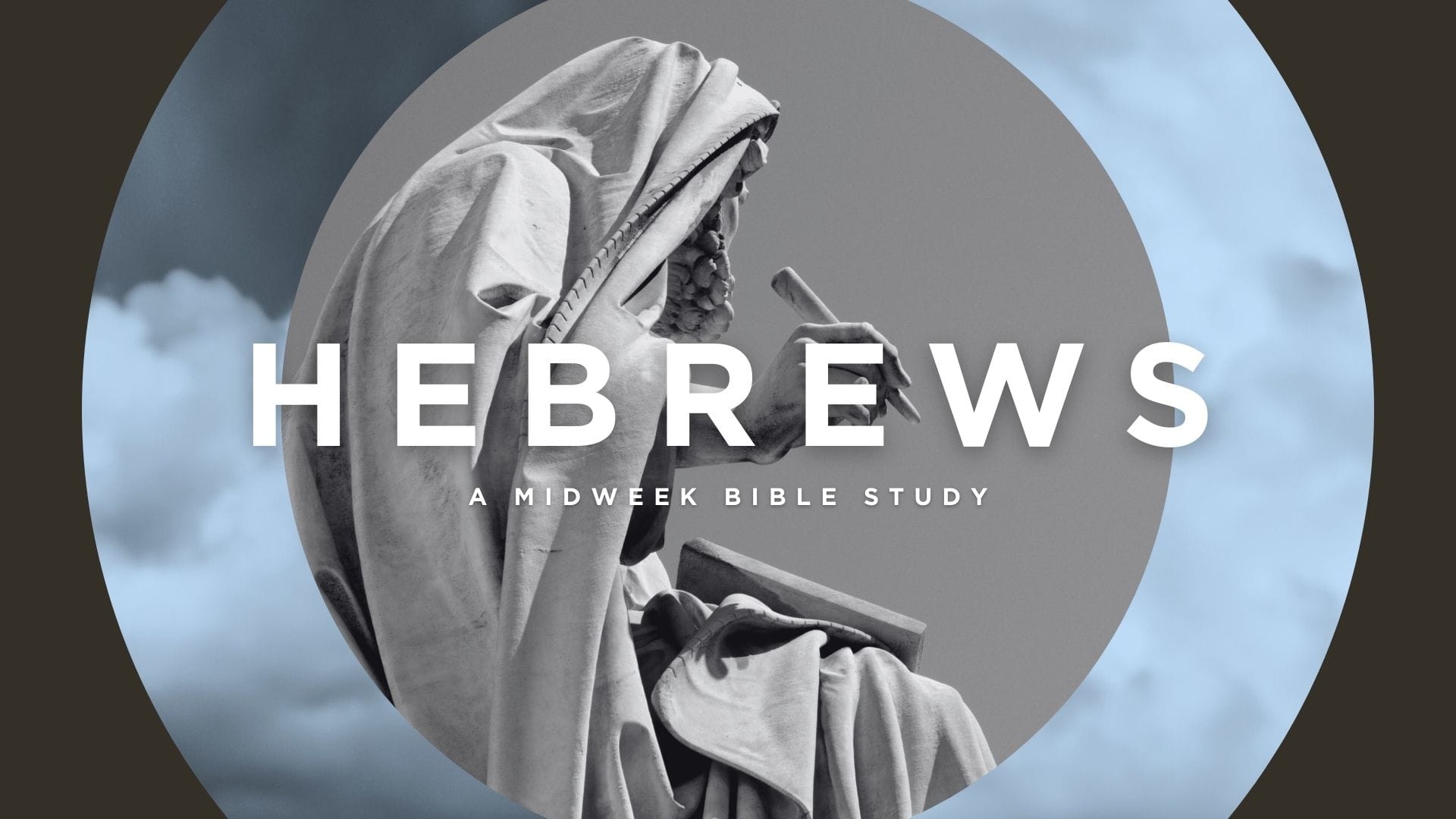Men's Bible Study Summary: Hebrews 2:5 - 3:6
In our second study, the book of Hebrews invites us to reflect on Jesus as both the pioneer of our salvation and the one who is greater than Moses.

Introduction
In our second study, the book of Hebrews invites us to reflect on Jesus as both the pioneer of our salvation and the one who is greater than Moses. This passage moves from the profound truth of Jesus’ humanity and sacrificial work to His ultimate superiority as the fulfillment of God’s purposes in history. It is a call to marvel at Christ, anchor ourselves in the gospel, and persevere in faith.
Jesus’ Humanity and Our Salvation (Hebrews 2:5–18)
The writer of Hebrews begins by grounding us in God’s purpose for humanity. Quoting Psalm 8, the author highlights humanity’s unique role in creation: “You made him for a little while lower than the angels; you have crowned him with glory and honor” (Hebrews 2:7). Though this originally referred to humanity’s position as God’s image-bearers and dominion-exercisers, Hebrews reveals its ultimate fulfillment in Jesus, the true and perfect human.
Jesus entered into our frailty, becoming “lower than the angels for a little while” (2:9). Why? To “taste death for everyone” and lead “many sons to glory” (2:10). As the pioneer—or “founder”—of our salvation, Jesus experienced suffering and death on our behalf, showing us that glory comes through humility and sacrifice. By sharing in our humanity, Jesus also defeated “the one who has the power of death, that is, the devil” (2:14), and freed us from the fear of death (2:15). This is the heart of the gospel: Jesus’ death and resurrection have broken sin’s power and assured us of eternal life.
Perhaps one of the most comforting truths in this passage is that Jesus’ humanity equips Him to serve as our merciful and faithful high priest. As Hebrews 2:17 declares, “He had to be made like His brothers in every respect, so that He might become a merciful and faithful high priest in the service of God.” Jesus didn’t remain distant from our pain and temptation—He experienced them firsthand. When we face suffering, temptation, or fear, we can run to Him, knowing He understands and intercedes for us. As verse 18 promises, “Because He Himself has suffered when tempted, He is able to help those who are being tempted.” What an incredible assurance: the exalted King of all creation is also our compassionate and understanding Savior.
Jesus Is Greater Than Moses (Hebrews 3:1–6)
From Jesus’ role as the pioneer of salvation, the writer transitions to emphasize His supremacy over Moses. This comparison might seem odd to us, but it was significant for the letter’s original audience—Jewish Christians tempted to revert to the old covenant, where Moses was revered as God’s greatest servant.
The passage begins with a call to “consider Jesus, the apostle and high priest of our confession” (3:1). As the “apostle” (meaning one sent), Jesus is the one sent by God to reveal His truth and accomplish His mission. As the “high priest,” He mediates between God and humanity, securing our access to the Father.
Moses was faithful “in all God’s house as a servant” (3:5), but Jesus is faithful “over God’s house as a son” (3:6). While Moses played a critical role in delivering the law and leading Israel, his work pointed beyond himself and forward to Christ, who fulfills and surpasses it. Jesus is not merely a servant in the house—He is the Son who builds and reigns over it.
Application
Jesus’ willingness to take on human flesh demonstrates the lengths to which God went to save us. The eternal Son of God became like us to redeem us, conquer sin and death, and restore us to glory. His humanity shows us the depth of God’s love and assures us that Jesus fully secured our salvation. The fear that often enslaves us—particularly the fear of death—has been defeated through Jesus’ resurrection. His victory gives us courage and hope to face life’s uncertainties.
The comparison between Jesus and Moses challenges us to recognize Jesus as the ultimate fulfillment of God’s promises. Moses was faithful as a servant; Jesus is the Son who reigns over God’s people. This truth encourages us to trust Him fully and reject any temptation to cling to old ways of thinking, traditions, self-reliance, and law-keeping for God's forgiveness and acceptance. Instead, we are called to entrust ourselves to Christ, the builder and ruler of God’s house.
The writer of Hebrews closes this section with a call to steadfastness: “We are His house if indeed we hold fast our confidence and our boasting in our hope” (3:6). This is both an encouragement and a challenge. Living faith in Christ is not passive—it is active, proven by remaining anchored in His promises and focused on His sufficiency. Perseverance is a result and mark of genuine faith, and the author reminds us that our hope in Christ is the foundation on which we stand. We will speak more about this in next week's study.
An Invitation
Men of the church, join us on Wednesday nights from January through March 2025 (6:30 - 8:00 PM) as we explore the riches of Hebrews together.
